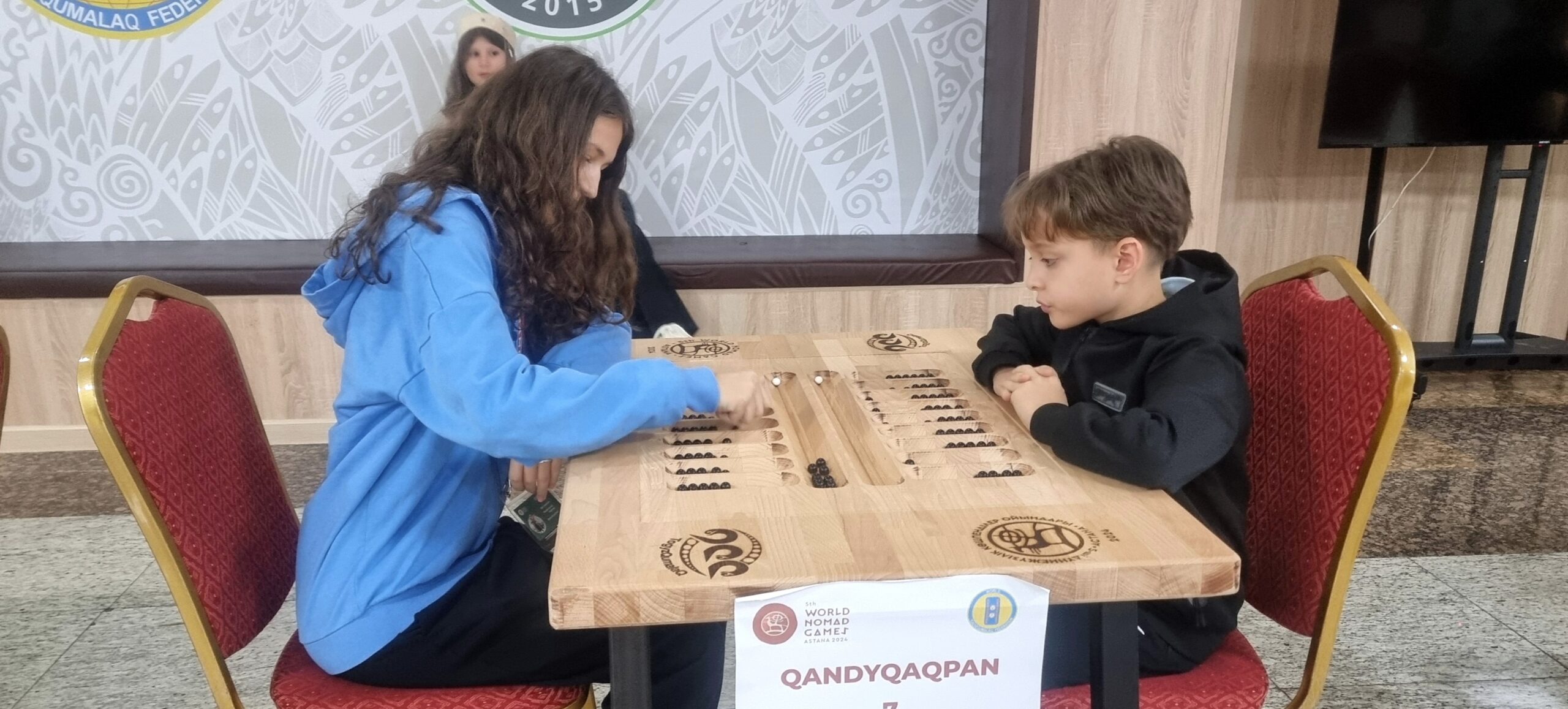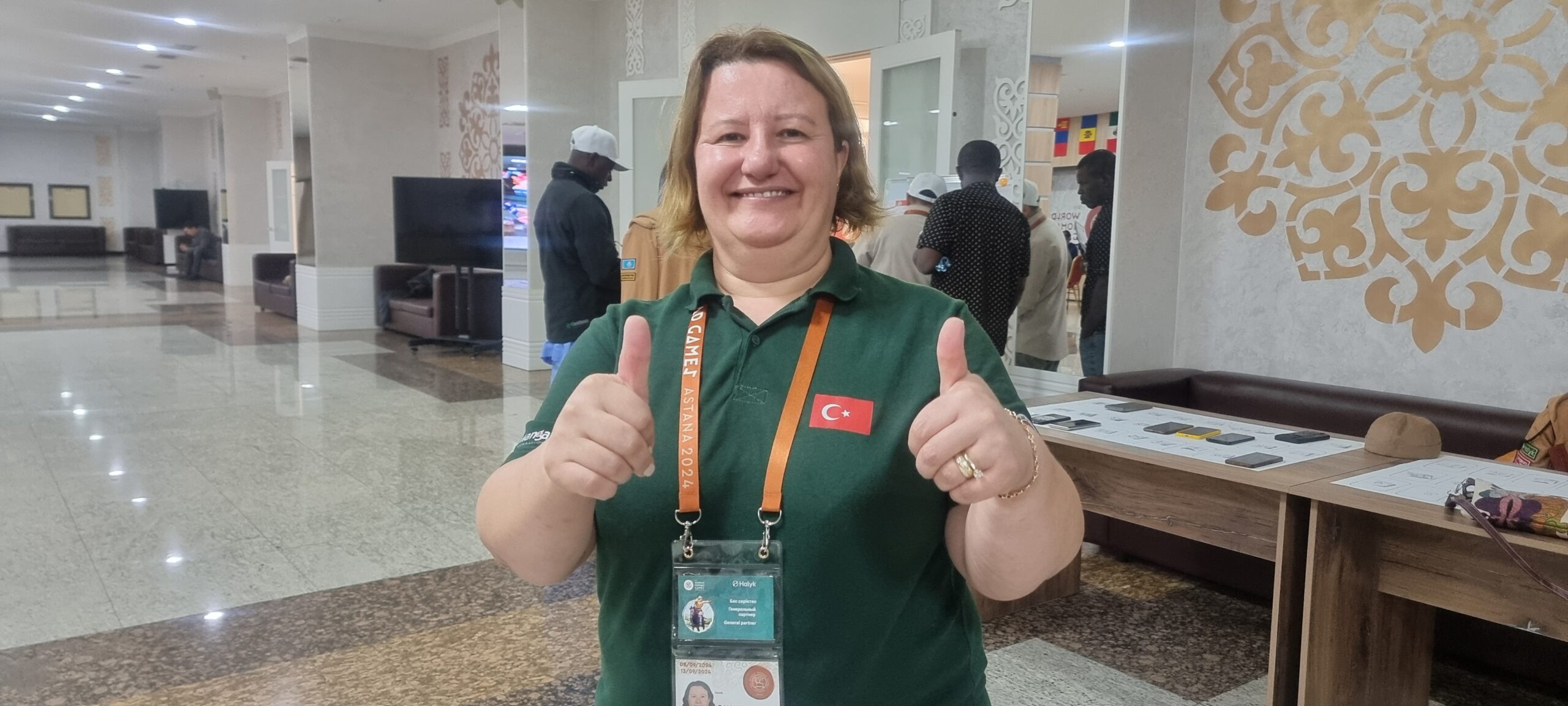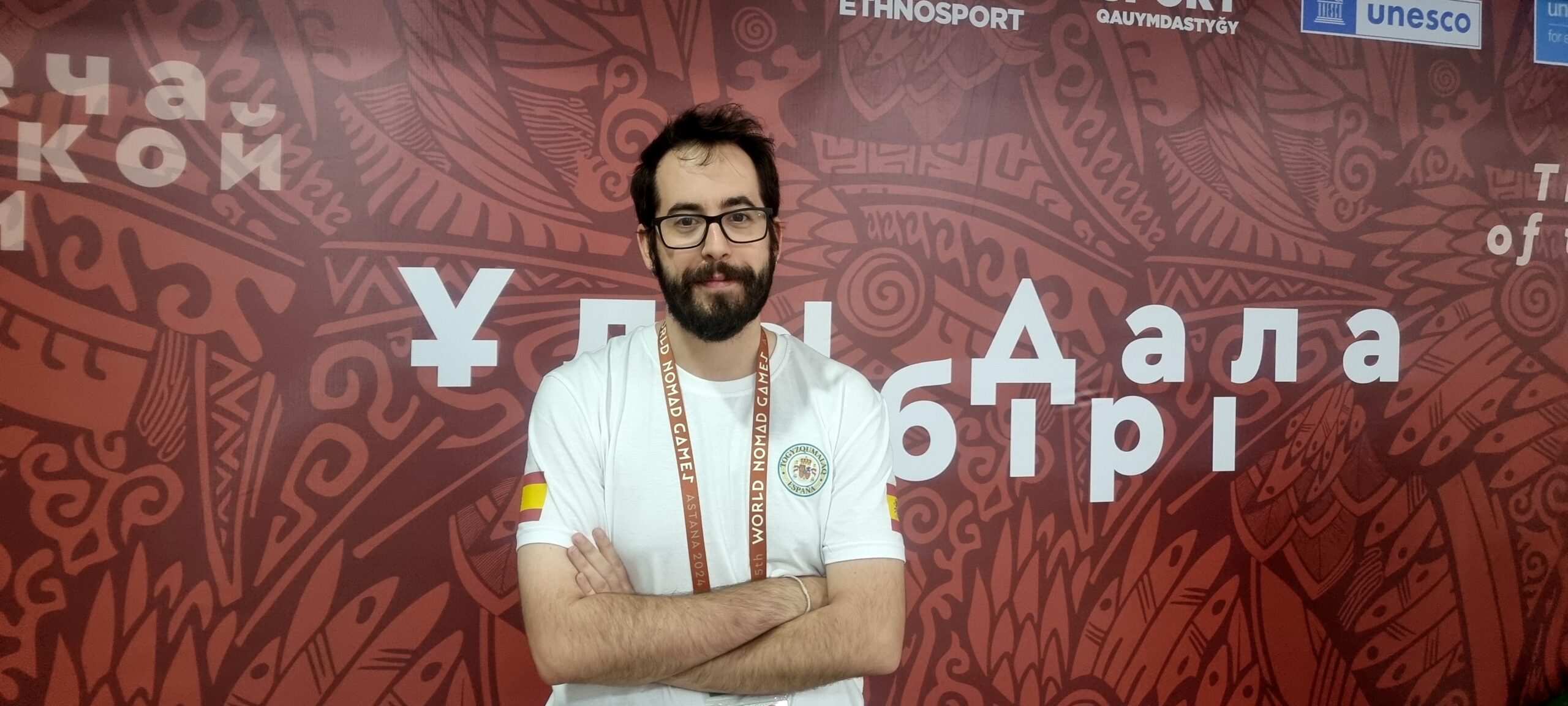ASTANA – The Kazakh national team won three gold medals and secured first place in the team standings for togyzkumalak (nine pellets) on Sept.11, reported the press service of the Kazakh Ministry of Tourism and Sports.

Razvan Andrei Mucica, the youngest participant from Romania plays togyzkumalak with his friend. Photo credit: The Astana Times
In the women’s division, Moldir Serikkyzy claimed gold, while Ansagan Kozhanasyp took silver. In the men’s division, Beksultan Bostandykov earned the gold medal, with bronze going to Yersultan Auelbay.
The Kazakh team also took first place in the team competition, adding another gold to their tally at the games.
On Sept. 9, a togyzkumalak board was launched into space and returned to Earth the same day to celebrate Togyzkumalak Day and the fifth World Nomad Games. The first matches of the tournament began at 9:09 a.m., with participants making the first move on the ninth game board, where nine players competed at high speed.
One of the most inspiring participants was 11-year-old Razvan Andrei Mucica from Romania. He was introduced to togyzkumalak just a year ago when he was in the fourth grade. Captivated by the game’s strategic depth and intellectual challenge, he quickly developed his skills.
UNESCO promotes this game in Romania, and Mucica’s school held various games and workshops, inspiring ten of his classmates to join him.
The young athlete also competed in the World Championship in togyzkumalak in Almaty. Despite only a short period of training, he finished in fourth place, a remarkable achievement that he considers a great success.
Turkish athlete Canan Alicioglu described the togyzkumalak tournament as challenging and fair, despite her team narrowly missing out on medals by just one point.

Canan Alicioglu, an athlete from Türkiye. Photo credit: The Astana Times
“I am both a trainer and a player, and I have loved intellectual games like this for over ten years,” said Alicioglu. “Today’s games were exciting, and the toughest opponents were the team from Kazakhstan.”
Alicioglu, who has been competing for over five months, emphasized the cultural exchange that comes with the sport.
“We have a lot of fun and learn so much, not just about the game, but about different cultures as well,” she added.
Spanish participant Miguel Hernandez Hidalgo praised the event’s atmosphere, noting that while the previous day was better for him, the experience was still enriching.

Spanish participant Miguel Hernandez Hidalgo. Photo credit: The Astana Times
“The matches were friendly, and even when I lost, I felt it was fair. The level of competition is high here,” Hidalgo said. “I am just a beginner, but I wanted to take on the challenge, come to this country, and join the adventure. It has been really fun, especially because you are constantly meeting new people and forming new connections.”
Despite having learned the game only a few months ago, Hidalgo was eager to participate in such a significant event.
“These were my first real matches, where I learned how to open, how to attack, the formulas, the math—I did not know any of that before. I am just the new guy here,” he said.
Hidalgo also recounted how his introduction to togyzkumalak came through a friend, whose Kazakh teacher first introduced her to the traditional game.
“She told me to come to the country and join the game. She was the pioneer, and that is how we ended up playing here,” he explained.
Although Hidalgo did not have much time to explore the city, he admired the two mosques he visited.
“I loved them. Once I finish the Oware tournament, I hope to get a day to explore. Then I am heading to Almaty, just as a tourist, to know the country better,” he added.
A total of 114 participants from 41 countries, including Colombia, Bangladesh, the United Kingdom, France, Germany, the United States, China, Latvia, Africa, and Arab countries, competed in the togyzkumalak tournament.
